Kia Niro vs Nissan X-Trail - Differences and prices compared
Compare performance (180 HP vs 213 HP), boot space and price (29100 £ vs 34200 £ ) at a glance. Find out which car is the better choice for you – Kia Niro or Nissan X-Trail?
Costs and Efficiency:
Price and efficiency are often the first things buyers look at. Here it becomes clear which model has the long-term edge – whether at the pump, the plug, or in purchase price.
Kia Niro has a slightly advantage in terms of price – it starts at 29100 £ , while the Nissan X-Trail costs 34200 £ . That’s a price difference of around 5023 £.
Fuel consumption also shows a difference: Kia Niro manages with 2.40 L and is therefore clearly more efficient than the Nissan X-Trail with 5.70 L. The difference is about 3.30 L per 100 km.
Engine and Performance:
Power, torque and acceleration say a lot about how a car feels on the road. This is where you see which model delivers more driving dynamics.
When it comes to engine power, the Nissan X-Trail has a to a small extent edge – offering 213 HP compared to 180 HP. That’s roughly 33 HP more horsepower.
In acceleration from 0 to 100 km/h, the Nissan X-Trail is significantly quicker – completing the sprint in 7 s, while the Kia Niro takes 9.90 s. That’s about 2.90 s faster.
There’s also a difference in torque: Nissan X-Trail pulls convincingly stronger with 525 Nm compared to 265 Nm. That’s about 260 Nm difference.
Space and Everyday Use:
Cabin size, boot volume and payload all play a role in everyday practicality. Here, comfort and flexibility make the difference.
Seats: Nissan X-Trail offers evident more seating capacity – 7 vs 5.
In curb weight, Kia Niro is somewhat lighter – 1474 kg compared to 1668 kg. The difference is around 194 kg.
In terms of boot space, the Nissan X-Trail offers noticeable more room – 585 L compared to 451 L. That’s a difference of about 134 L.
When it comes to payload, Nissan X-Trail a bit takes the win – 574 kg compared to 466 kg. That’s a difference of about 108 kg.
Who comes out on top?
Overall, the Kia Niro shows itself to be outperforms in nearly all aspects and secures the title of DriveDuel Champion.
It convinces with the more balanced overall package and proves to be the more versatile choice for everyday use.
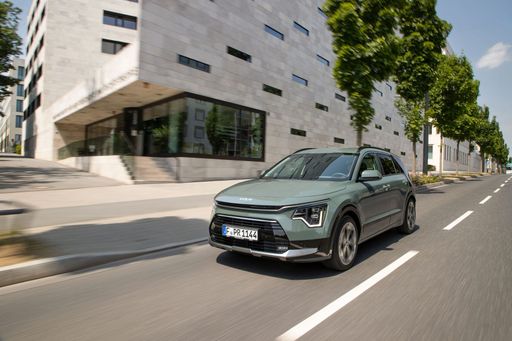
Kia Niro
Costs and Consumption
View detailed analysis
Engine and Performance
View detailed analysis
Dimensions and Body
View detailed analysis
Kia Niro
The Kia Niro blends clever packaging and modern styling into a compact crossover that’s refreshingly sensible for daily life. It’s comfortable, economical and packed with user‑friendly tech, so if you want a fuss‑free family car with a touch of green credibility, the Niro is worth a test drive.
details
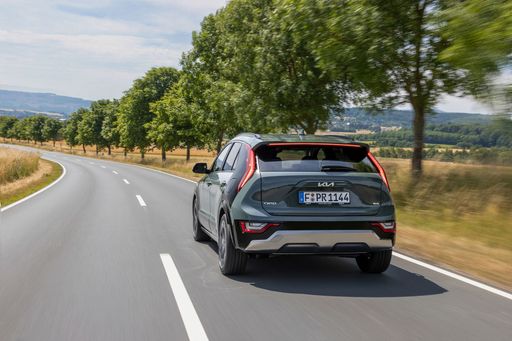
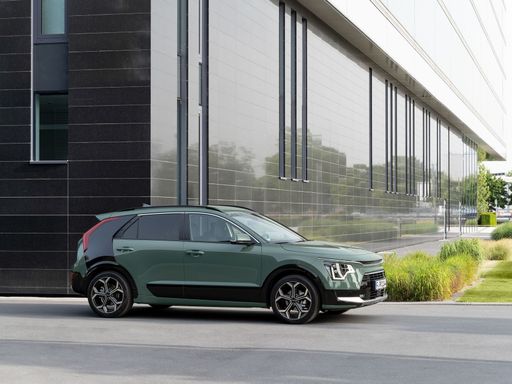
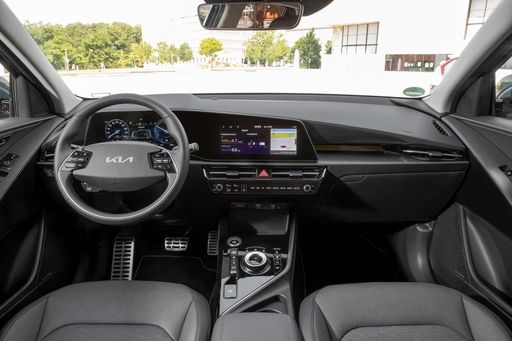
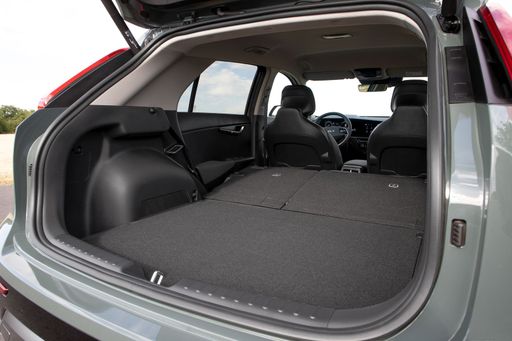
Nissan X-Trail
The Nissan X-Trail is a roomy, no-nonsense family SUV that mixes sensible practicality with a quietly modern look, making it an easy choice for busy lives and weekend escapes. It drives with calm confidence, delivers a comfortable ride and sensible tech, and won’t demand drama while doing the everyday heavy lifting.
details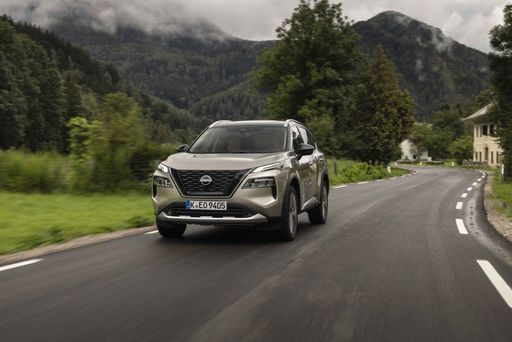
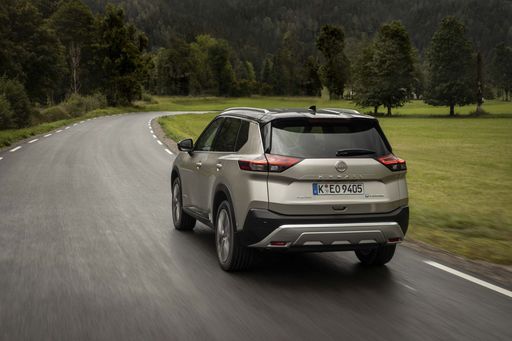
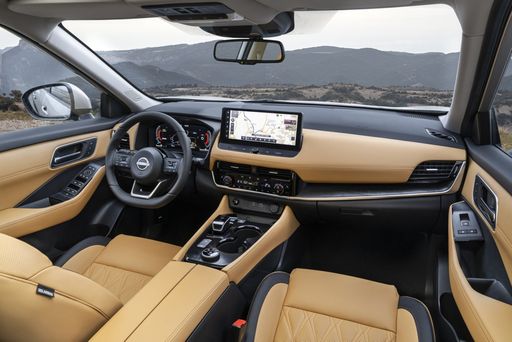
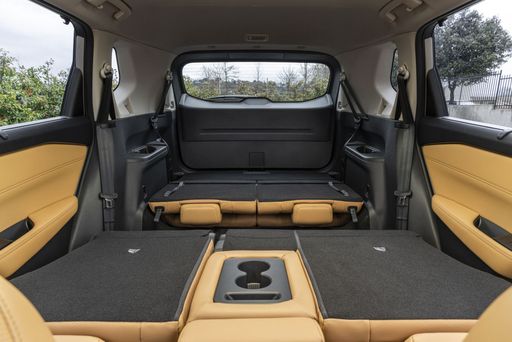
Costs and Consumption |
|
|---|---|
|
Price
29100 - 38600 £
|
Price
34200 - 50500 £
|
|
Consumption L/100km
2.4 - 4.9 L
|
Consumption L/100km
5.7 - 6.9 L
|
|
Consumption kWh/100km
-
|
Consumption kWh/100km
-
|
|
Electric Range
57 - 62 km
|
Electric Range
-
|
|
Battery Capacity
1.3 - 11.1 kWh
|
Battery Capacity
-
|
|
co2
53 - 111 g/km
|
co2
131 - 161 g/km
|
|
Fuel tank capacity
37 - 42 L
|
Fuel tank capacity
-
|
Dimensions and Body |
|
|---|---|
|
Body Type
SUV
|
Body Type
SUV
|
|
Seats
5
|
Seats
5 - 7
|
|
Doors
5
|
Doors
-
|
|
Curb weight
1474 - 1594 kg
|
Curb weight
1668 - 1961 kg
|
|
Trunk capacity
348 - 451 L
|
Trunk capacity
177 - 585 L
|
|
Length
4420 mm
|
Length
-
|
|
Width
1825 mm
|
Width
1840 mm
|
|
Height
1545 mm
|
Height
-
|
|
Max trunk capacity
1342 - 1445 L
|
Max trunk capacity
-
|
|
Payload
466 kg
|
Payload
432 - 574 kg
|
Engine and Performance |
|
|---|---|
|
Engine Type
Full Hybrid, Plugin Hybrid
|
Engine Type
Petrol MHEV, Full Hybrid
|
|
Transmission
Automatic
|
Transmission
Automatic
|
|
Transmission Detail
Dual-Clutch Automatic
|
Transmission Detail
CVT, Reduction Gearbox
|
|
Drive Type
Front-Wheel Drive
|
Drive Type
Front-Wheel Drive, All-Wheel Drive
|
|
Power HP
138 - 180 HP
|
Power HP
163 - 213 HP
|
|
Acceleration 0-100km/h
9.9 - 11.4 s
|
Acceleration 0-100km/h
7 - 9.6 s
|
|
Max Speed
170 - 185 km/h
|
Max Speed
-
|
|
Torque
265 Nm
|
Torque
300 - 525 Nm
|
|
Number of Cylinders
4
|
Number of Cylinders
3
|
|
Power kW
102 - 132 kW
|
Power kW
120 - 157 kW
|
|
Engine capacity
1580 cm3
|
Engine capacity
1497 cm3
|
General |
|
|---|---|
|
Model Year
2025
|
Model Year
2025
|
|
CO2 Efficiency Class
C, B
|
CO2 Efficiency Class
F, D, E
|
|
Brand
Kia
|
Brand
Nissan
|
Is the Kia Niro offered with different drivetrains?
The Kia Niro is available as Front-Wheel Drive.




